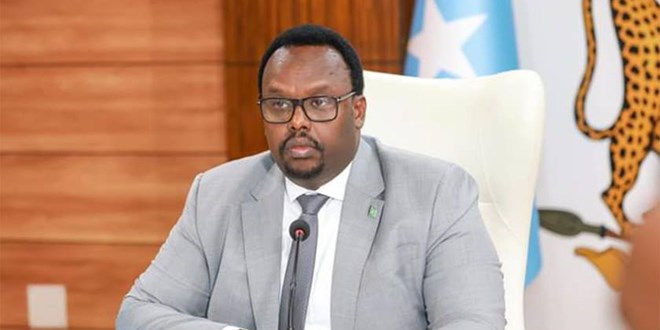[ad_1]

Monday January 22, 2024

FILE – Somalia’s Deputy Prime Minister Salah Ahmed Jama
Hargeisa (HOL) – The Horn of Africa is witnessing escalating tensions as Somalia and Somaliland engage in a heated exchange of accusations triggered by political agreements that have also drawn Ethiopia into a deepening regional conflict.
At the heart of the dispute is a controversial memorandum of understanding (MoU) signed on January 1, 2024, between Ethiopia and the self-declared independent region of Somaliland. The agreement, which grants Ethiopia access to the sea and a stake in Ethiopian Airlines, in exchange for an anticipated recognition of Somaliland’s claim to independence, has faced ferocious opposition from the Somali government.
Speaking at the Third South Summit of the Group of 77 and China (G77+China) in Uganda’s capital, Kampala, Somalia’s Deputy Prime Minister Salah Ahmed Jama vehemently condemned the Ethiopia-Somaliland pact. Jama characterized the deal as a violation of Somalia’s sovereignty and a direct threat to the region’s stability. He argued that the agreement disregards international law and the United Nations charter, calling on global powers to oppose what he termed Ethiopia’s “irresponsible aggression.”
In a sharp response, Somaliland’s Minister of Constitutional Affairs, Abdinasir Muhammad Hassan Buuni, accused Somalia’s President Hassan Sheikh of leading a war against Somaliland. Buuni claimed that following the agreement with Ethiopia, Somalia had intensified its campaign against the self-declared region. He highlighted Somaliland’s achievements and international engagements, asserting that the Somali government’s actions undermined these efforts.
Analysts see the Ethiopian-Somaliland agreement as a strategic but dangerous move by Ethiopia to secure a maritime outlet that is vital for its landlocked economy. The deal has raised concerns about its implications for the already volatile Horn of Africa. Ethiopia’s increasing involvement in the region, while economically motivated, is perceived as a political statement, challenging the existing territorial integrity of Somalia.

FILE – Somaliland’s Minister of Constitutional Affairs, Abdinasir Muhammad Hassan Buuni
Deputy Prime Minister Jama, in his address, warned of the destabilizing effect the deal could have on the region. He emphasized the risk to major trade routes like the Red Sea and the Bab el-Mandeb Strait and the potential for such instability to fuel radical groups like al-Shabaab.
Somalia and Somaliland have had a long-standing territorial dispute. Somaliland declared its independence from Somalia in 1991 following the collapse of the Siad Barre regime. However, it has not been recognized internationally and continues to be viewed as part of Somalia by the international community.
This unfolding situation presents a significant challenge for international diplomacy in the Horn of Africa. The global community, particularly bodies like the African Union and the United Nations, faces the delicate task of navigating these tensions, promoting regional stability, and addressing the underlying issues of sovereignty and territorial integrity.
[ad_2]
